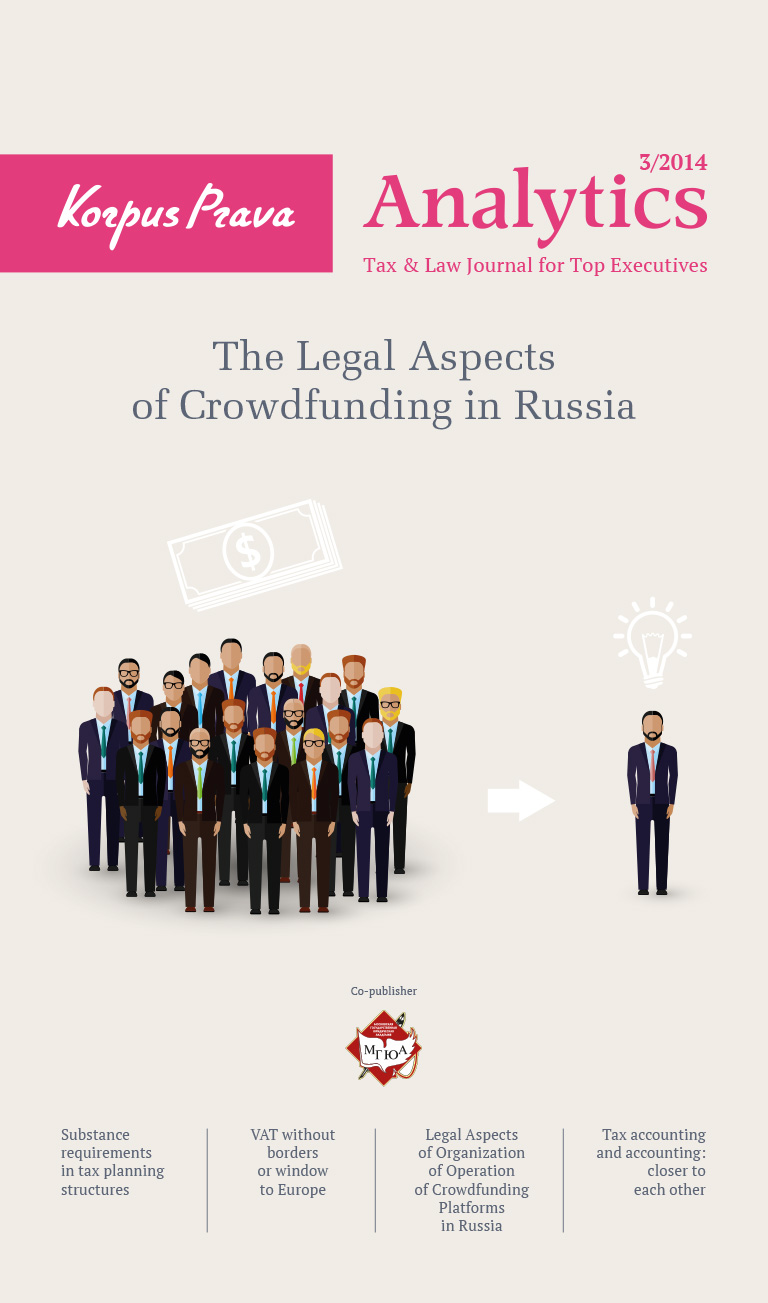- Cyprus Citizenship Scheme for Foreign Investors
- Squeezed But Pleased: Taxation of Passive Income in the European Union
- VAT Without Borders or Window to Europe
- Legal Aspects of Organization of Operation of Crowdfunding Platforms in Russia
- Substance Requirements in Tax Planning Structures
- “Deposit Splitting” of Individuals. Legal Civil and Criminal Aspects
Amnesty 3-0: Who Is Winning?
The third stage of capital amnesty starts in Russia. To be precise, this is not even the third stage, but the fourth, since the first amnesty, announced in 2015, was extended for six months from the initially declared period.
In 2015, the amnesty was extended for one simple reason: people failed to believe, failed to follow, filed no specific returns, as they anticipated repressions and reaction of the state. The first six months were clearly not enough to convince citizens that by disclosing their foreign assets they risk nothing, so the amnesty was extended for another six months, until June 30, 2016.
However, the second six months of the first amnesty brought no desired disclosure of information to the state either. In 2015, no one believed that in the distant 2018 the automatic exchange of information on the accounts of citizens and foreign companies would actually begin. Besides, the political situation around our country after the annexation of the Crimea created the illusion that no, for sure, no one will ever reveal anything to us. But politics is politics, while tax evasion is quite a different story. Automatic exchange of tax information was not the idea of Russia; we all just joined the already created system of exchange between states. And as a part of this system, in 2018, our tax authorities received the desired information on foreign assets of our citizens.
The year of 2018, which seemed so distant three years ago, has come. And it has become obvious that now our citizens will be more willing to disclose voluntarily information on foreign assets.
That is why compared to the first stage of the amnesty, in 2018, citizens filed specific returns much more often, revealing the maximum number of assets, even those that no longer belonged to them (for example, one could declare closed accounts, and the fact that the statute of limitations for currency offenses is two years, it was very important for many to take advantage of this opportunity).
The absence of negative practices, when people who disclosed information in the first stage were visited and asked questions, also contributed to the greater disclosure.
In the course of our work there was one case when there were questions raised regarding the property declared in a specific return. But it was a story with a happy ending, since the reference to the fact that the information on the property was submitted to the tax authority under the capital amnesty allowed avoiding liability for the violation of the legislation on Controlled Foreign Companies (hereinafter – CFC).
Perhaps some tax inspectors had an overwhelming desire to punish, collect, fine, and maybe they even made some attempts to do so, but there were no high-profile cases observed in the country, which means everything was settled at the initial stages.
One thing can be said for sure, the second stage of the amnesty was more productive. Citizens declared both foreign companies (which allowed avoiding multi-thousand fines for late notification on participation in CFCs) and foreign accounts.
The authorities received information on the assets of companies and citizens both through automatic exchange and directly from citizens. So why was there a need for the third stage?
Another prolongation of the amnesty campaign announced by the president was unexpected not only for citizens, but also for legislators.
It was expected that the second stage of the amnesty would smoothly flow into the fourth one and specific returns could be filed as early as March. But the bill of the third stage of the amnesty appeared only in April. The amnesty will be held from May 1, 2019 to February 29, 2020, and its conditions differ significantly from the first two stages.
The main condition for the third stage of the amnesty is the return of assets to their homeland. In case accounts are indicated in a specific return in order to avoid liability for the violation of currency legislation, the funds from the accounts will have to be transferred to Russia.
If citizens want to grant amnesty to a foreign company, it must be re-domiciled to the Russian Federation.
Probably, these conditions are fair enough, since citizens already had two chances to use the capital amnesty, and malicious violators generally bear greater liability compared to newcomers.
It is difficult to predict the success of the third stage of the amnesty, but it is an established fact that there are already those who are ready to use it!
And only time will tell what is next. As our foreign colleagues joke: Russia is an all-forgiving country!
Your subscription to our journal will definitely boost the efficiency of your specialists and downsize your expenses for consultants.
The journal is available free of charge in the electronic version.
Free Download

